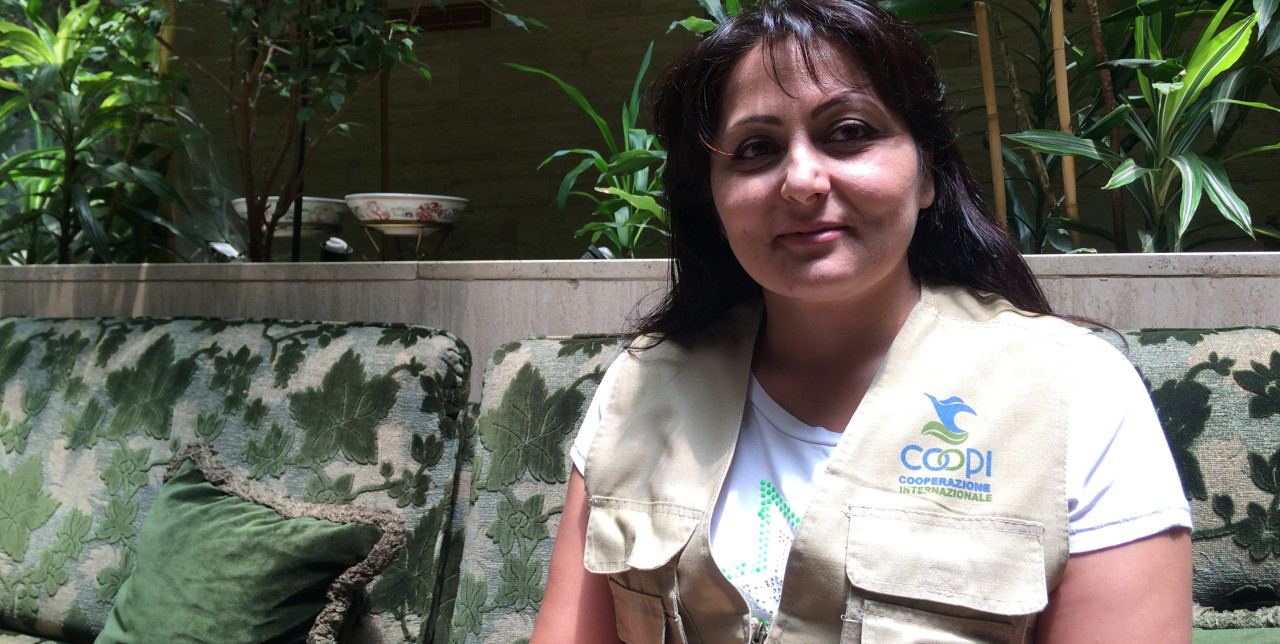13-07-2017 | di COOPI
Syria: what we are doing
In Syria, within the project "Food support in response to the Syrian crisis in Damascus's metropolitan area", supported by Italian Agency for Development Cooperation (AICS), we started a collaboration with Kinana Amran.
She has a master's degree in Agriculture and she was a teacher in Damascus Faculty of Science. Now, in COOPI she is the Senior Agronomist for a project implementing in Qatana in Rural Damascus.
Alejandro Hurtado, COOPI Chief of Mission, asked her some questions.
Why did you decide to join COOPI?
I have always dreamt of applying my academic study in a way that serves my country. After the war in Syria, my desire to work in humanitarian projects has increased, especially projects that can provide a service that benefits the poor and vulnerable families for a long time and that enables them to achieve self-sufficiency and a secure source of income for the family. When I found the opportunity to work in my specialty and in a humanitarian project in COOPI I felt very lucky.
What is the agricultural situation in Syria?
Syria achieved self-sufficiency in agricultural products a long time before the war. Since the war started, due to forced displacement, the use of land mines and the insecurity of some areas the planted area has been reduced in more than a half. Not only many families were forced to migrate their lands but also they lost their agricultural equipment, electricity used has been restrained in some areas to even 4 hours per day only or access to fuel completely restricted due to high prices and little production. Therefore, Syria suffers from a decline in agricultural production and many families aren't able to purchase their equipments for cultivation.
What is the situation of the syrian people in Qatana?
Qatana has become a tranquil area in the region between Damascus, Daraa and Quneitra and thus families arrived to the area seeking safety. Nowadays we can find IDPs, vulnerable families affected by the crisis and several female heads of households. Qatana was always a very good agricultural area but nowadays its production has decreased thwarting the families access to food and to income generating positions.
Why this project is important?
This project will support many poor and vulnerable families so that they can produce their own food needs and sell the surplus for some income. We expect that with more projects generating income and agricultural products for selling also the agricultural products prices can be reduced in the long term.
What can COOPI achieve in the future?
I think COOPI will be one of the leading humanitarian organizations in identifying the most appropriate sector for intervention and support for the most vulnerable. I hope that the scale of its work will be expanded more and more in Syria to include all affected areas and provide humanitarian support so that vulnerable families can return to normal life and ensure their food security.




 Syria
Syria